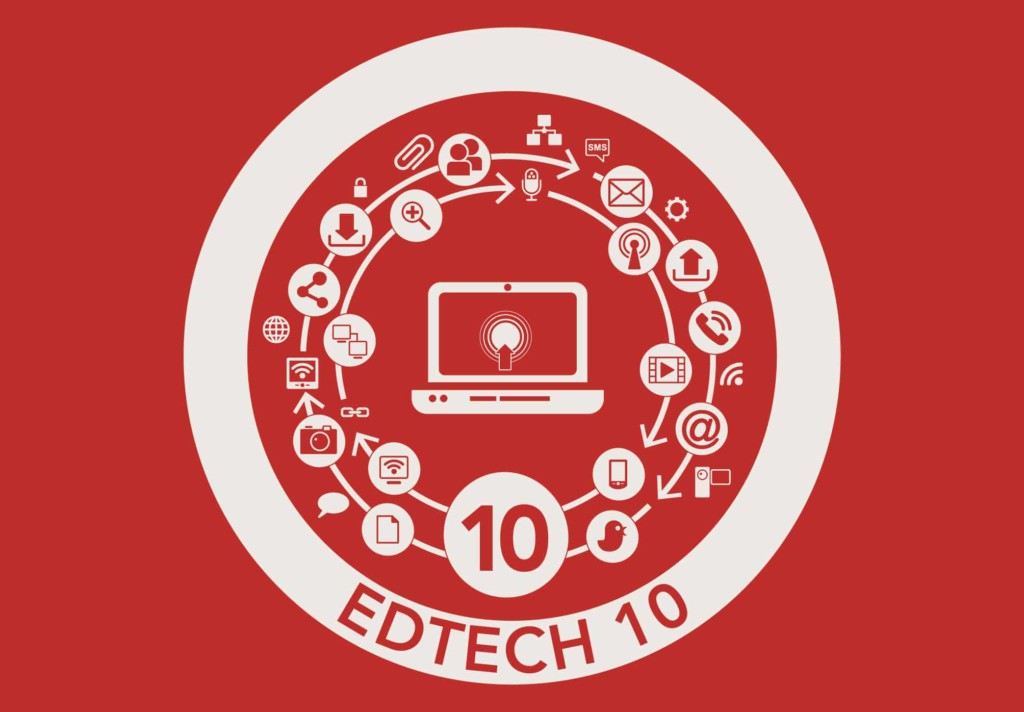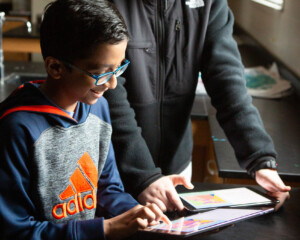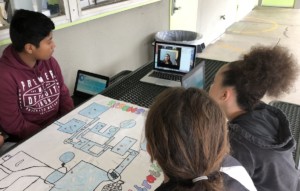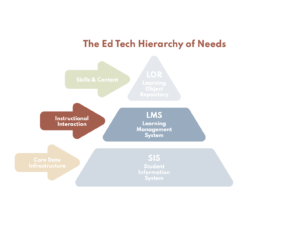EdTech 10: Better #SchoolInfo

Hello parents, teachers & friends, we’re thinking about school report cards and other forms of school information–what it’s for, who uses it, and how it could be better. Here’s a quick quiz:
- Did you know your state is required to produce a report card for each school in the state?
- Do you know where to find the report card? Is it useful?
- What should people be able to learn from a school report card?
- What could make report cards and school information more useful?
Email confidential responses to [email protected], send us a tweet @getting_smart or leave a comment on this post.
Mastery Matters
1. Competency-Based Progress. Competency Works (@CompetencyWorks) had a great week. Leaders from school districts in New Hampshire met to discuss changes the transformation of public education through inclusion of additional performance assessments that help show a whole host of skills associated college and career readiness. And, Competency Works also is working with a core group of New York City Public Schools (@NYCSchools) to encourage mastery-based approaches to learning, and they have a great video showcasing the mastery-based approach which includes interviews with teachers and students.
2. De-mystifying grades. A news story and video features a story about deeper understanding of proficiency-based learning in Maine. The Great Schools Partnership supports schools in New England that are moving towards proficiency-based learning, demystifying what’s behind a grade. Instead of earning a credit, transcripts will showcase what students can do and have mastered and will include real world learning experiences such as internships. Check out Tom’s feature on Great Schools Partnership.
Points to Ponder
3. Kids these days are expensive. Check out our post on the cost of raising and educating Kids, which is more than $25k per year. Add a college savings account and the total of about $33k is two thirds of the median family income. Implications will include more students and families and students seeking and building new pathways to family-wage employment including career and tech prep. Look for a new #GenDIY series exploring nontraditional routes to careers launching September.
4. Mom, I want to sleep in. The American Academy of Pediatrics (@AmerAcadPeds) announced this week that they are in support of later start times for adolescents in schools. For those of us who are or have ever been teachers, we know the profound effects that lack of sleep can have on learning. America’s doctors are concerned. This makes for a good conversation starter as you talk with parents, friends, and students- what do you think about later start times? AAP says 8:30 AM onward sounds good to them. With blended and online learning, kids can pick the times that work best for them.
Digital Developments
5. Adaptive tool for success. Pearson (@Pearson) announced a next gen update to their personalized and adaptive tool, Success Maker, and highlights a story out of Texas where a district reached significant gains using the personalized math and reading curriculum for K-8.
6. Fast growing companies.PresenceLearning (@presencelearn) is featured as one of Inc Magazines’s (@Inc) top 500 list of America’s fastest growing companies. The online leader in special education is ranked 146th and is 3rd in the field of education. They offer online special education in speech and occupational therapy and partner with districts to build capacity for services offered. Way to go, PresenceLearning!
For The Core
7. Feedback welcome. With a goal of focusing energy on the merits of new college and career ready standards, Kentucky Commissioner Terry Holliday (@KYCommissioner) announced that state of Kentucky (the first state to adopt Common Core State Standards) has created a new portal to obtain feedback on the standards. Called the Kentucky Core Academic Standards Challenge, the goal is to increase awareness on what the standards are in English/LA and math and solicit actionable feedback from all stakeholders.
Teacher Topics
8. The pros of teacher evals. The Bellwether Ed(@BellwetherEd) team collected data from 17 states and Washington DC for information on teacher evaluation. The report, titled “Teacher Evaluations in an Era of Rapid Change: From ‘Unsatisfactory’ to ‘Needs Improvement’” launched this week. In it, the authors note that teachers can improve practice through effective evaluation, and that evaluation can lead to improve recruitment and retention. We think Summit Public Schools has the coolest school model and best teacher development system.
9. Teacher-centered #profdev is here to stay. NGLC (@NextGenLC) just published an article about the Education Achievement Authority of Michigan and their work to provide a personalized learning approach to PD. We give an enthusiastic “thumbs up” to this idea, and talk more about in this Preparing Teachers for Deeper Learning and the infographic featuring competency-based, personalized PD best practices.
Policy Problem
10. NCAA decides what constitutes good instruction? Tom wrote an article this week titled NCAA Way Out of Bounds for Outlawing Online. Tom writes, “It is outrageous that the NCAA is deciding what constitutes good instruction– specifically effective student-teacher interaction– and becoming a de facto national regulator of online learning. Thousands of student athletes are ineligible to compete in college because the NCAA took on a job where they had no business, they applied anachronistic measures, and–worst of all– they acted capriciously with a disappointing lack of transparency.”
Current NCAA criteria would not look kindly on a truly competency-based course in which one student might demonstrate mastery in 6 weeks while another student takes 6 months. It’s time for the NCAA to update their criteria to incorporate competency-based learning…or leave that to states who should be supervising statewide online schools.
Pearson and PresenceLearning are Getting Smart Advocacy Partners.







0 Comments
Leave a Comment
Your email address will not be published. All fields are required.